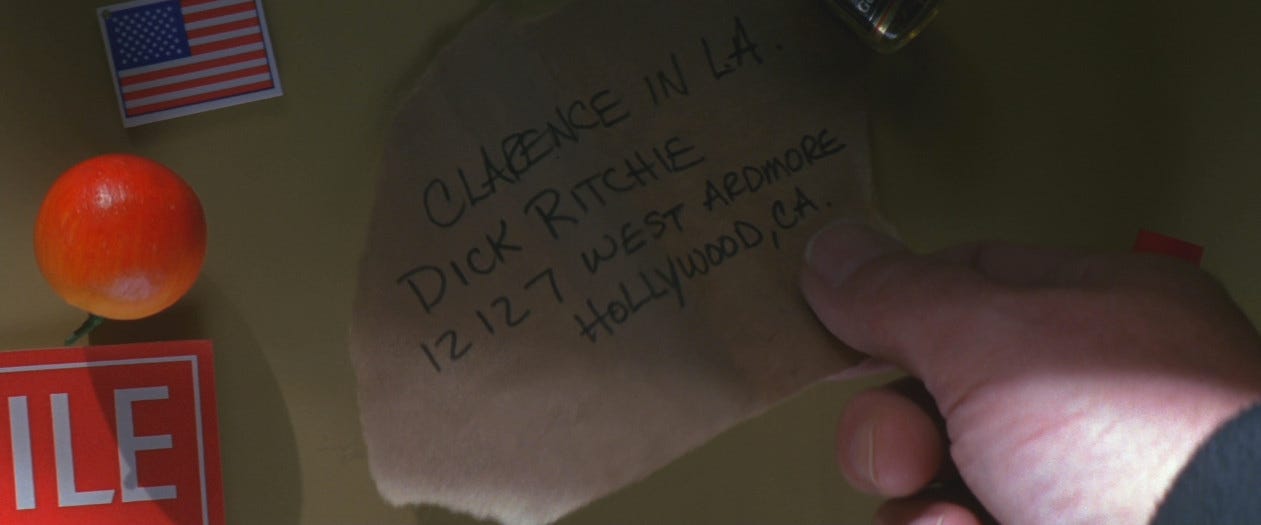TLDR: Forgetting is a pain; different things we forget & corresponding means of remembering
Word count: 465 words
Read time: 3 mins
In the classic 1993 movie, True Romance*, Clarence Worley is on the run from a murderous gang. He stops by to see his dad, Clifford, to get some advice and let him know that he and his girlfriend, Alabama, are headed to L.A. Clifford sensibly jots down his son’s temporary address on a post-it note, and sticks it on the fridge.
The baddies come to Clifford’s place in their pursuit of Clarence and Alabama. Despite certain extreme methods of persuasion, they’re unable to extract any info from Clifford concerning Clarence’s whereabouts. I won’t spoil the whole movie, but I can say that that scene works out badly for Clifford and the mobsters still get their info as they spot the post-it note on the fridge on their way out. Moral of this (there are many in this outstanding film): post-it notes are poor memory aids.
Forgetting wastes a lot of our time. We spend 5,000 hours looking for things over the course of our lives. How sad! No wonder Google made a two trillion dollar business out of making the internet searchable. And a couple of weeks ago you voted enthusiastically for not-forgetting as one of the next newsletter topics.
We all have our own system for trying to remember. Some of us jot things down in a notebook. In more frantic moments we scribble on whatever scraps of paper we can find. Failing that, we use the backs of our hands. We email ourselves. The Notes app on our smartphones is also favoured by many, including X.com’s former CEO, Jack Dorsey. Those less inclined to write may keep a record of their current thoughts in a voice memo. And then there’s the to-do list, the calendar, and timeboxing...
But for most of us, these methods are highly fallible. And what I’ve seen online on the topic of not forgetting is inane, generic, and helpful.
So, to plug that gap in the literature while also helping out our memories, I’m writing a six-part mini-series on Not forgetting:
Part 1: Occurrences. How to hold onto those valuable, fleeting thoughts.
Part 2: Personal items. Wallet, keys, phone, and other errant physical objects.
Part 3: Information. Knowledge & learning to boost performance & capability.
Part 4: Communication. Replying to friends & family, colleagues & contacts.
Part 5: Events in the future. When the timing of the recollection really matters (timeboxing is sure to make an appearance…)
Part 6: Events in the past. Journaling, photos, emails & calendars.
We’ll start next week, then, with Part One, and actionable advice.
To prime you for that…suppose you’re on a hike or a jog with no tools for writing. A brainwave occurs to you: something you need to say to someone, an idea for a blog, a meeting action you haven’t acted on, a joke you can’t wait to tell.
How will you remember it?
Marc
*is there another film with so many megastars? At least 13: Christian Slater, Patricia Arquette, Dennis Hopper, Val Kilmer, Gary Oldman, Brad Pitt, Christopher Walken, James Gandolfini, Samuel L. Jackson, Michael Rapaport, Chris Penn, Saul Rubinek. Maybe The Grand Budapest Hotel.
Links you might like
7 days of Timeboxing (the free email micro-course)






